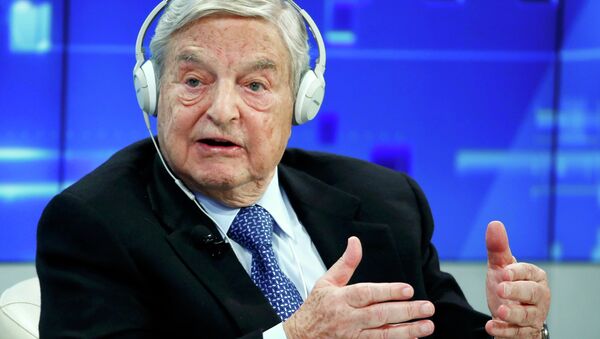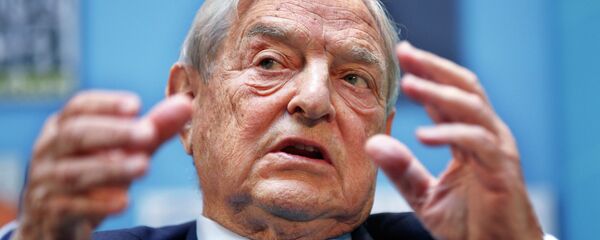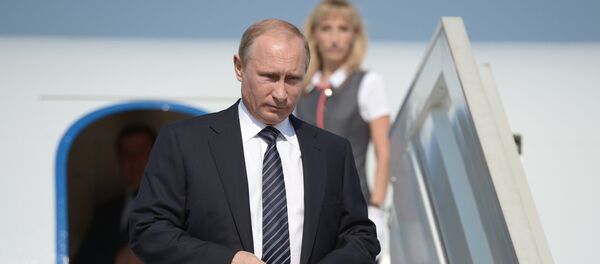Soros, well known in Eastern Europe and Russia for the work of his foundations in helping to overthrow governments using color revolutions, is now actively engaged in trying to influence the political process in the United States.
But as PolitRussia contributor Ivan Shatov recalled, that's very likely just the tip of the iceberg as far as Soros' real efforts go in trying to influence the presidential election.
Soros, the journalist noted, has not been at all shy about attempting to undermine the democratic process in entire regions in Eastern Europe and in Russia's backyard, starting in the early 1990s after the collapse of the Soviet Union, first in the former Soviet Bloc, then in former Soviet republics, and finally in Russia itself.
But Soros' operations have been broader than that, Shatov added. "It's no secret," for example, "that his funds sponsor media acceptable to Washington around the world."
With the billionaire's NGOs and charities well-represented in the post-Soviet space, only Russia can live with the comfort of knowing that as of November 2015, Soros' foundations cannot work in the country, having been classified as 'undesirable organizations'.
In the meantime, the billionaire has turned his gaze to the American presidential election – to the long and drawn-out process of selecting and electing a commander-in-chief which stretches from a year to a year-and-a-half. Among the latest revelations regarding the influence of Soros' operations has been the WikiLeaks publication of the internal correspondence of his Open Society Foundations, which revealed an attempt to influence the presidential race with the help of Pope Francis.
The grant, provided to the PICO National Network and the Faith in Public Life, was aimed at helping to form public opinion, and to mobilize policy proposals by Catholics in line with the Democratic Party's platform, and engaging in "organizing and messaging" using major media sources. The results of the campaign, according to an internal review published in January, were "even greater than anticipated."
"Of no less interest is the trusting relationship between Pope Francis and Cardinal Rodriguez Maradiaga, who due to his closeness to Francis is often considered 'vice-pope', " Shatov noted. "Soros' empire considers Maradiaga a key figure in its information campaign, and Soros himself is confident that the Cardinal will gladly promote the billionaire's initiatives in the Vatican and, more importantly, influence the Pope himself."
Moreover, Shatov noted, "there is no doubt that we will again become witnesses of the billionaire's activity" in attempting to influence global politics from behind the scenes, including through the all-important presidential elections in the United States. "And the closer the election gets, the more revelations, scandals and sleaze will emerge."
If America's anti-globalist forces really want to try and limit the influence of Soros-inspired efforts to select the next president of the United States, perhaps they can take a lesson from Russia, and campaign to ban the operations of the billionaire's organizations on US territory, exposing them as the threat to the democratic process they really are.




